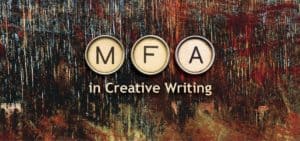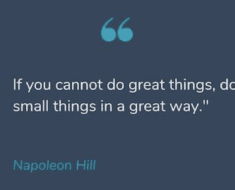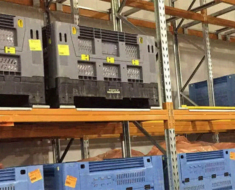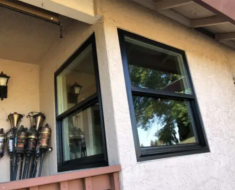
Source: https://liberalarts.oregonstate.edu/
A lot of people argue that an MFA in Creative Writing is pointless. They say that good writers are born, not taught, and that the program can’t really “help” with anything. They say it’s only for literary writers, and that you can get the same benefit from attending a workshop or reading a book. But they’re wrong. The benefits of the program are real, and while there may also be some downsides to the program, the good more than outweighs the bad.
Who Benefits from an MFA Program in Creative Writing
Those who are interested in writing “literature” (however you want to define it) often find a benefit in the program because they are with other like-minded individuals and talk about integrating meaning with their stories. They can talk about literary theory, write papers about literature, and read new literature.
But it’s not just literary writers that can benefit. Unless the program is specifically for literature, then even those who write genre fiction can find benefits. Just because a genre writer may be aiming for a more general audience, that doesn’t mean that their writing cannot be enhanced or improved by learning about writing theory and style. Writers, no matter what it is that they write, can and should always be open to learning about new ways to advance their work and knowledge.
Exposure in an MFA Program in Creative Writing

Source: https://news.vanderbilt.edu/
- New Ideas and Styles: One of the biggest benefits of the writing program is that you will get to be exposed to a number of new ideas and styles. Don’t keep yourself in your little cubbyhole – branch out! With everything you do in the program, you won’t be able to help but get exposure to new ideas and styles. Drink it all in, and take it to heart. You will be doing a lot of reading, and if you’re able to personalize it, that’s great, but even if you can’t, there is nothing wrong with learning about things you don’t think you’ll use because you may be surprised. Just the exposure to the idea may influence your writing and thoughts in ways you don’t expect.
- Writers: Most MFA programs will have published writers as teachers and as presenters. These writers can provide their own experiences and talk about their writing processes. Again, even if you aren’t writing in the same genre, these are still valuable experiences. And if you’re lucky enough to get in touch with writers who are in the same or similar genres, you may find yourself with a new friend or connection.
- Publishers: Publishers often like to come and meet with MFA program students. They know that students in the programs are serious about their writing. Some publishers have even been known to scout out writers in MFA programs!
- Academia: If you’re interested in the program because you want to teach, buy essay online, being in the program gives you a taste of academia. You’re able to talk to the teachers and administration and see what they do and how they do it. You may discover that the duties of a professor aren’t quite what you thought they were, or you may discover that it’s the perfect life for you. Without being a part of the program, though, how will you know?
Feedback and Encouragement from Others

Source: https://www.newschool.edu/
- From Mentors and Teachers: Not all programs employ mentors as part of the process; some programs offer classes only. Either way, you are going to get to submit your work for feedback to published writers who want to help you improve. You will generally get very detailed and helpful feedback from your teachers. They’re there because they want to see you succeed. They want to help others. While you may not always agree with the feedback you get, remember that it is coming from someone with experience and with the best of intentions.
- From Peers: Most programs are going to involve peer review. Some students hate the process because they feel that the best feedback they get is from their teachers, and that may be true. But the purpose of peer review isn’t just to get feedback. It’s also to give feedback. Learning to read and critique someone else’s work will also help you to read and critique your own work. Learning to apply a critical eye is a process, and the more you practice it, the better you will get.
Being Forced to Work
Writers write. Writers read. Those are two credos of writers. You can’t be a writer if you don’t write, and successful writers also read. Being in an MFA program forces you to do both things. You must produce writing, and you must read other writers’ work. Instead of having the excuse of life getting in the way or being too busy to read and write, your life is reading and writing, and what makes you busy is reading and writing. There are no more excuses. You are there.
Why Not To Do It

Source: https://marketingland.com/
Yes, I know I said that it is worth it, but they are still three very important factors to consider before you start applying.
- Cost: Most programs aren’t cheap. For ones that have residency periods and then involve working on your own, you may discover that the tuition is only half the problem. The costs for travel and lodging can also be expensive. Be sure that you know what you’re getting into.
- Time: While most MFA programs are two years in length, those are two long years. Depending on the program, you will be asked to produce quite a bit of writing as well as doing a lot of reading. If you don’t have ten to twenty hours a week to spend on your program, you may find yourself cramming at the last minute, and you will not get as much out of it.
- Future Employment: While MFA programs can help open doors, they do not guarantee publication or future employment. Many good writers graduate, but not all of them go on to get book deals, find jobs as professors, or even find a writing career. Don’t go in thinking that the outcome will be that dream job or a six- or seven-figure contract. Know that you’re doing it for the education.









































